
I HAD THOUGHT traversing the vast, remote, waterless deserts of Australia would be the hardest part of my journey across the country with camels, but now I was facing a completely different challenge: traffic. This was the worst of the busy roads I had encountered thus far – a winding, narrow road with a speed limit of 80km/h that climbed a hill leading to the outskirts of Lismore in the Northern Rivers region, New South Wales. I only had one more week of walking until I reached the most easterly point of mainland Australia, Byron Bay, and the shores of the Pacific Ocean, the end goal of my trek across Australia.
I hugged the far left of the road, pushed up against a guardrail that squeezed me and my five large camels between speeding cars and a steep drop below. The scene was quickly becoming more chaotic. Just as we had begun our ascent, the UHF radios my partner, Jimmy, and friend, Keirin, had been using to communicate with one another and direct traffic safely around the camels had gone flat. Jimmy was running ahead of my slowmoving camel string, his shirt drenched in sweat as he rounded the blind bends in advance, frantically waving his arms to slow the speeding oncoming traffic. Keirin was driving at a snail’s pace up the hill behind me and the camels. Attached to her ute was a yellow “Traffic Hazard Ahead” sign – a futile attempt to stop cars from passing me on the narrow bends.
Without communication between my two-person support crew, neither knew when it was safe to let cars pass. Drivers were becoming impatient and overtaking with complete disregard for my nervous animals; at times their legs were only inches from the wheels.
This story is from the May - June 2023 edition of Australian Geographic Magazine.
Start your 7-day Magzter GOLD free trial to access thousands of curated premium stories, and 9,000+ magazines and newspapers.
Already a subscriber ? Sign In
This story is from the May - June 2023 edition of Australian Geographic Magazine.
Start your 7-day Magzter GOLD free trial to access thousands of curated premium stories, and 9,000+ magazines and newspapers.
Already a subscriber? Sign In
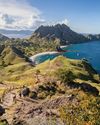
SULAWESI SENSATIONS
There are worlds within worlds and marvels untold waiting to be experienced on Indonesia's remote islands.
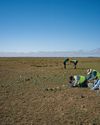
SEARCHING FOR AUSSIE DINOSAURS
Our understanding of where to find ancient life in Australia has been turned on its head by a new appreciation of the country's geology. Now the world is looking to our vast outback as the latest hotspot to locate fossils.
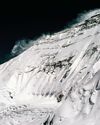
THE HARDEST NIGHT
The first Australian ascent of Mt Everest in 1984 is one of the great feats of mountaineering. Climbed by a small team semi-alpine style, with no bottled oxygen, via the Great (Norton) Couloir, it remains unrepeated 40 years later.
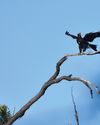
WEDGE-TAILED WONDER
The chance discovery of an eagle nest leads to an extended vigil observing normally hidden behaviours of one of nature's supreme winged marvels.
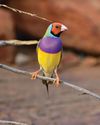
BURDENED BY BEAUTY
Northern Australia's Gouldian finch survives in huge numbers in cages around the world, but its wild population continues to struggle.
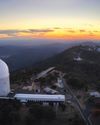
A TELESCOPE FOR A GOLDEN AGE
After a stellar 50 years as one of the country's major scientific assets, the AAT continues to play a major role in keeping Australian astronomy on the world stage.
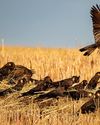
COCKY WHISPERING AT COOMALLO CREEK
This patch of remnant bush on the edge of the West Australian wheatbelt is a place loved by one of Australia's rarest bird species and the man who has studied the site for more than 50 years.

A PIONEERING PAIR
Louisa Atkinson and her mother, Charlotte, were among Australia's earliest authors, and pioneers in women's rights.
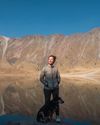
THE LONGEST WALK
Lucy Barnard is walking from Argentina to Alaska -the length of the Americas - on an extraordinary journey of endurance and adventure.
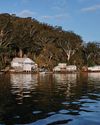
SECLUDED, BUT NOT ALONE
In an era of heightened social isolation, where many of us lead lonely lives, Dangar Island offers the chance to be part of a supportive, connected community.